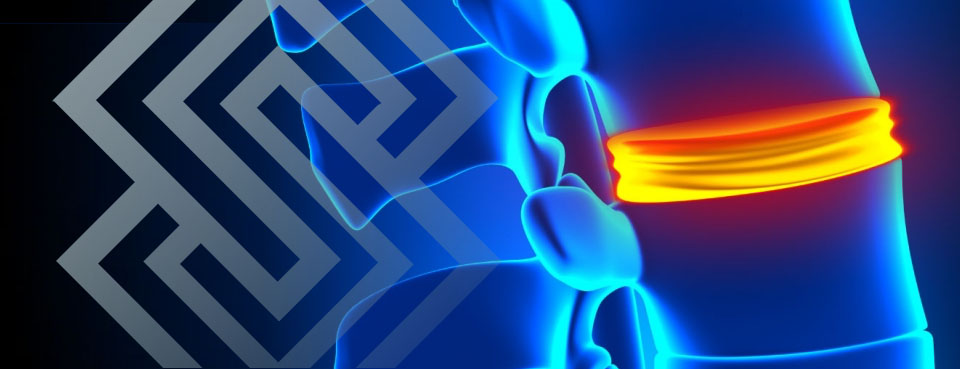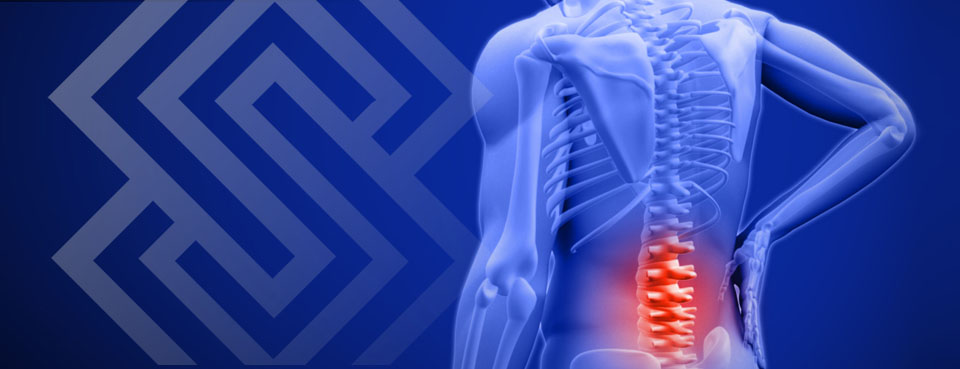Herniated Nucleus Pulposus
Pain can be caused by a herniated nucleus pulposus, also referred to as a herniated or slipped disc and is very common effecting a large percentage of the population. A herniated nucleus pulposus occurs when the soft nucleus of a disc begins to leak out from within the the annular fibrosus, the disc’s hard outer casing . This often occurs as a result of natural aging, during which discs regularly lose water content and become susceptible to dehydration and begin to degrade.A herniated nucleus pulposus without pain or other symptoms. A herniated nucleus pulposus only becomes apparent when the displaced disc material interrupts the spine’s structural integrity or begins to affect surrounding nerves, ligaments and tissues. A disc with a herniated nucleus pulposus can usually always be treated or repaired successfully with proper care and treatment.
Herniated Nucleus Pulposus Causes
Herniated nucleus pulposus is caused most frequently by age and degeneration that occurs over time. Other factors can accelerate the damage from a herniated nucleus pulposus including:• Obesity.
• Sedentary lifestyles.
• Acute injuries sustained from a car accident, fall or from sports activities.
• Improperly lifting.
• Genetic predispositions.
• Congenital spine disorders developed from birth or adolescence.
• Smoking.
• Excessive alcohol consumption.
• Extended, repeated periods of labor, standing, driving or sitting.
• Other degenerative disc diseases or associated spinal disorders.
Herniated Nucleus Pulposus Symptoms
While a herniated nucleus pulposus is asymptomatic, a protruding nucleus can compress nearby nerves or the spinal cord, sometimes leading to serious nerve damage and should be treated immediately. The symptoms of a herniated nucleus pulposus are also similar to those of many other serious spine and back conditions, including cancer, spinal stenosis and facet joint degeneration. Therefore, it is necessary and may be crucially important to obtain a comprehensive diagnosis as soon as possible.Herniated nucleus pulposus symptoms can include:
• Chronic pain and discomfort.
• Pain that travels the path of a nerve.
• Pain that radiates through to extremities.
• Numbness.
• Muscle weakness.
• Tingling sensations.
• “Pins-and-needles” sensations.
• Abnormal muscle reflex reactions.
• Loss of coordination.
When certain nerves are compressed, a herniated nucleus pulposus may cause fever and incontinence of the bladder or bowels. If these symptoms occur, immediately seek medical care as they may indicate a life threatening emergency.
Notice:
This advertisement has been provided for informational purposes only and should not be used as a substitute for medical treatment or an actual diagnosis. If you are experiencing pain that may be associated with back or neck disorders you should seek the care of a doctor as soon as possible or immediately if your symptoms are accompanied by incontinence / loss of bladder or bowel control, as these may be signs of life threatening condition.

